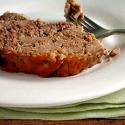 Many Americans, including some vegetarians, still consume large amounts of dairy products, but here are several strong reasons to eliminate dairy products from your diet.
Many Americans, including some vegetarians, still consume large amounts of dairy products, but here are several strong reasons to eliminate dairy products from your diet.Milk has long been praised as a ‘weapon’ in the war against osteoporosis, but recent clinical research shows that it actually is associated with a higher fracture risk, and there’s been no protective effect of dairy calcium on bone.
Increasing your intake of green leafy vegetables and beans, along with exercising have been shown to help strengthen bones and increase their density.
Dairy products are also a significant source of fat and cholesterol in the diet, which can increase your risk for cardiovascular disease. A low-fat vegetarian diet that eliminates dairy products, as well as adequate amounts of exercise, proper stress management and quitting smoking not only will help prevent heart disease, but could also reverse it.
Ovarian, breast, and prostate cancers have been linked to dairy product consumption. According to a recent study by Daniel Cramer, a Harvard doctor, when excessive amounts of dairy products are consumed and the body’s enzymes are unable to keep pace with breaking down the lactose; it can build up in the blood and affect a woman’s ovaries.
Another recent study showed that men who had the highest levels of IGF-I, insulin-like growth factor which is found in cow’s milk, they were at four times the risk of prostate cancer compared to those men who had the lowest levels of IGF-I.
In addition, milk may not provide a consistent and reliable source of Vitamin D in the diet. Milk samplings have been found to have inconsistent levels of Vitamin D, and some have been found to have as much as 500 times the indicated safe level. Excess Vitamin d in the blood can be toxic and can result in calcium deposits in the body’s soft tissues.
Milk proteins, milk sugar, fat, and saturated fat in dairy products may pose health risks for children and lead to the development of chronic diseases such as obesity, diabetes, and formation of plaques in the circulatory system that can lead to heart disease.
By choosing to consume a nutrient-dense, healthful diet of grains, fruits, vegetables, legumes, and fortified foods including cereals and juices, you can help meet your body’s calcium, potassium, riboflavin, and vitamin D requirements easily and simply, without the added health risks from dairy product consumption.











